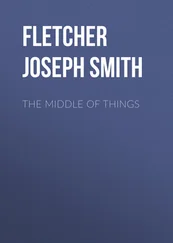Jose Peixoto - The Implacable Order of Things
Здесь есть возможность читать онлайн «Jose Peixoto - The Implacable Order of Things» весь текст электронной книги совершенно бесплатно (целиком полную версию без сокращений). В некоторых случаях можно слушать аудио, скачать через торрент в формате fb2 и присутствует краткое содержание. Год выпуска: 2008, ISBN: 2008, Издательство: Knopf Doubleday Publishing Group, Жанр: Современная проза, на английском языке. Описание произведения, (предисловие) а так же отзывы посетителей доступны на портале библиотеки ЛибКат.
- Название:The Implacable Order of Things
- Автор:
- Издательство:Knopf Doubleday Publishing Group
- Жанр:
- Год:2008
- ISBN:9780385526784
- Рейтинг книги:5 / 5. Голосов: 1
-
Избранное:Добавить в избранное
- Отзывы:
-
Ваша оценка:
- 100
- 1
- 2
- 3
- 4
- 5
The Implacable Order of Things: краткое содержание, описание и аннотация
Предлагаем к чтению аннотацию, описание, краткое содержание или предисловие (зависит от того, что написал сам автор книги «The Implacable Order of Things»). Если вы не нашли необходимую информацию о книге — напишите в комментариях, мы постараемся отыскать её.
Set in an unnamed Portuguese village against a backdrop of severe rural poverty,
is told from the various points of view of two generations of men and women, hardened by hunger and toil and driven by a fate beyond them to fulfill their roles in the never-ending cycle of violence, retribution and death.
José, a taciturn shepherd, sees his happiness crumble when “the devil” tells him he is being cuckolded. Old Gabriel offers wise counsel, while a different kind of love story develops concerning Moisés and Elias, conjoined twins attached at the tips of their little fingers. Unable to live without each other, they find their tender communion shattered when Moisés falls in love with the local cook. And, of course, there is the Devil himself. Love may be a luxury, but there are moments of the greatest tenderness among even the most unlikely lovers.
Written with subtle prose and powerful imagery,
draws us into this unique and richly textured world. It is a novel of haunting beauty and heralds the arrival of an astoundingly gifted and poetic writer.
The Implacable Order of Things — читать онлайн бесплатно полную книгу (весь текст) целиком
Ниже представлен текст книги, разбитый по страницам. Система сохранения места последней прочитанной страницы, позволяет с удобством читать онлайн бесплатно книгу «The Implacable Order of Things», без необходимости каждый раз заново искать на чём Вы остановились. Поставьте закладку, и сможете в любой момент перейти на страницу, на которой закончили чтение.
Интервал:
Закладка:
With a whistle that cut through the air like a whip, José called the dog. The tips of her ears lifted as if pulled by a fishing line, her eyes opened as if she’d smelled game, and she leapt from her spot as if to run after a hare. And she barked at the legs of the sheep. The sheep, startled, woke up to a nightmare which, in their not very intelligent sheep minds, they quickly forgot, falling into line and moving forward as a herd, always forward, since the legs of sheep can’t move backward. And the proud, haughty, almost human sheepdog proceeded to the farmstead at José’s side. It was earlier than usual when the sheep, goaded by barks that pierced the air, entered through the gate. It was summer, it was August, and the longer day still had a lot of afternoon to go. The air was sheer light. José crossed the courtyard, but only entered the house in his mind: he looked at his wife, who didn’t look back, and he wanted to tell her something that he didn’t say and that she didn’t hear. With the black sheepskin on his back and the sack slung over his shoulder by a rope, he passed by the closed door of old Gabriel and proceeded toward the town. He pictured old Gabriel and pictured Moisés, and both images splintered into a swarm of colors, an explosion of colors in the face and body of Moisés; both standing before him and saying things he couldn’t make out with his blind ears, his deaf eyes. And he wished he could have heard Moisés and old Gabriel now, and he wished that the world weren’t an irreversible fall, in which you just keep on falling, forever closer to the depths, forever farther from the light. He proceeded toward the town. Not because he wanted to reach it. Not because he wanted, but because of the afternoon, because of the sun and light, because of an overwhelming solitude.
The sheepdog followed him, with a gaze that looked up from her bowed head. A vast gaze, like a soft, brown sky. A child’s or a mother’s gaze that was nevertheless a dog’s gaze. They reached the town. José thought. My wife. The giant. José thought my wife, the giant, and the people who saw him pass by didn’t say good afternoon, because they all recognized his grief and condemnation, his suffering. He reached the square, and his shadow, sweeping the ground, was firm, for it was a shadow that knew where it was going. Dogs from many different directions came and surrounded the sheepdog, wooing her in a now courteous, now bestial fashion. José walked straight toward Judas’s general store and entered alone. The devil, at the counter, looked at him from inside a smile. José looked at him without smiling and advanced. Looking at each other squarely, intently, without veering their eyes, holding on to the iron bar of their gazing, the devil said two glasses of red. Two full glasses appeared on the marble counter. Drink up. And José, engrossed in the devil’s fiery eyes, didn’t budge. The devil, looking at him across the top of his glass, smiled as he drank and, after a studied pause, said your wife isn’t who you think she is. José, inwardly consumed by a shudder, remained impassive. And the tempter, smiling, said if you don’t believe me, go home and see for yourself, the shutters of the bedroom window are open, just take a look through the crack in the curtains. José walked past the tables and out the door, the men dropped their arms and gazes, the devil smiled broadly, and the brimming glass of red wine remained on the counter by itself, like a witness of that moment, like an orphan, like a lit candle. José crossed the square, and the sheepdog looked at him and whimpered, but despite her desperate attempts she couldn’t follow him, for she was surrounded by a number of suddenly disinterested dogs, and joined to a dog whose tongue hung out.
On the road to the Mount of Olives José’s boots stepped more quickly. They made the rough sound of shovels digging into a pile of sand, moving fast and hard enough to hurl grains of sand far behind them. Seen from the sky, José was a speck advancing along a furrow cut into the plain, or a dot with arms and legs advancing along a furrow that cut between two plains or between two diversely colored parts of the same plain. Seen from the sky, José was next to nothing, and he didn’t even think it can’t be true, it can’t be true, nor did he hurry. Seen from the sky, all that he thought and that for him loomed larger than the sky was less than the feather of a swallow among the clouds or the memory of a raindrop on a stormy day. He had almost reached the farmstead when the wagons of the men who work the fields passed by. They looked at him one by one without saying good day. They looked at each other and said nothing, maintaining a respectful silence. José, continuing his solitary march under the sun, reached the fence that bounded the farm, and for the first time since leaving the general store he thought of not going on. He stopped at the fence, turned toward the sun, and stared right at it. Motionless on the road, he walked in the tunnel of light. And he remembered hearing, like a voice inside a dream, your wife isn’t who you think she is. He remembered if you don’t believe me, go home and see for yourself, the shutters of the bedroom window are open, just take a look through the crack in the curtains. He wiped the light from his eyes and walked on. Through the gate that was always left open. The sight of the rich people’s house struck him like a bitter memory or premonition, or the memory of a premonition. He walked past the waterwheel. Past the unwatered garden. Toward the bedroom window. Half a dozen steps away: the bedroom window. Its old but well-preserved wood; its old but spotless panes of glass. A square hole in the cream-colored wall, its edges rounded from coat after coat of whitewash. José’s cautious steps, long with growing old over and over. And yet the steps, once taken, were short and scarcely real in his memory. He leaned forward, the shutters were open, there was a crack between the curtains, and his wife lay under the giant. José felt like an already dead man dying over and over. His wife lay under the giant. Their son slept in his crib. And there was a very dark night, a box or a sack, in which José was enclosed, in which he gasped for air, in which he had already died and merely waited to breathe his last feeble breath of self-will. He looked at his son, at his peaceful face, his eyes, his tiny clenched fists next to his head, his slumber. He looked at his wife, and his wife looked straight at him. For the first time in a very long time, lying under the giant, his wife looked straight at him. Her gaze expressed sincere grief, suffering. And her gaze was José’s. Mourning. Blackness. Death. They looked at each other and understood each other. And from inside the bedroom, underneath the giant, José’s wife saw José draw away and felt in a flash his infinite absence, his eternal loss. And José, drawing away, realized that his wife wasn’t to blame, and he realized, in that moment, how much he loved her.
He walked under the wide sky to the sheep pen. The sheep ignored him. He walked behind the feed troughs, lifted his sack from his shoulder and strung it on a nail in one of the pinewood posts that held up the roof, then took off his black sheepskin and hung it on another nail. He dropped several armfuls of hay into the troughs. He changed the water. He grabbed the rope that was coiled around a gatepost, slipped his right arm through the coil, positioned it snugly on his shoulder, and took the road to Gallows Tree Hill.
YOUR GAZE WILL REMAIN IN MY GAZE when I die and when, already dead, I stare blankly at the plains that will be your gaze slowly turning into night. Your gaze will remain in my forgotten hands, and it won’t occur to anyone to look for it there. I think: no one ever looks for things where they are, because no one ever knows what the clouds, or smoke, or a gaze might be thinking. And you. You’ll keep losing your silence through forgotten hands, you’ll bury your silence inside my chest. Wife countless times over. Wife repeated in the breathing of a place that’s no more. Time and life. Wife, I don’t know what we were, but I know this day that you are mine. Today I know you. Your gaze and your silence are my own. Uselessly my own, for I’m going to where men cease being men. I’m going to take the lonely road that wends through life’s wreckage. The road where everything is scarcely anything, and each tiny thing is too much. At my side lie the vestiges of days with sheep and thoughts I don’t remember. At my side lie bits of you, of my son, of my father, my mother, my sister. You hanging up laundry, you on the devil’s lips, on everybody’s lips, abortion, she had an abortion, sweet girl, lying under the giant, feeding our son, sweet girl, sweet girl, your soft skin, that late afternoon we made love. My son when just born, with his serious, infant gaze, the first time I held him in my arms, in my heart, such a warm thing, sleeping in his crib. My father faithfully teaching me all he knew, hitting me with his belt, crying, pulling up on his trousers, looking at me and talking to me, sitting in front of my sister’s chicken coop, taking me with him into Judas’s general store, taking me to the cattle fair. My mother sending me into town on errands, giving me kisses, dying in bed, alive, then dead, in the coffin, telling me stories in the backyard. My sister helping my mother, wanting to get married, playing grown-ups and children all by herself, my mother prancing around her while sticking pins into her dress, the hopeful glimmer in her eyes, always talking, taking care of our father, getting married to the blacksmith who was drunk at the wedding, weeping, taking care of their child with awkward tenderness. I walk alone but have all of you with me. I’ll take you with me always. I look at the last ray of sun before the sun disappears. I think: a man is a day, a man is the sun for one day. And he has to keep going. My feet move forward over the earth. You’re still sleeping, my son, and I wanted to show you the sunset. I wanted to show you the earth, to teach you the color of earth on the inside, because to know the color of earth on the inside is to know the world and to know men. Now the sun has disappeared, leaving a bloodred aura over the summit where it sank, and I wanted to teach you that tomorrow will be a hot day. I wanted to teach you, son, that if you don’t see stars at night, you can expect rain the next day. To know these things is to know everything. These are the few things we’re given to know. The rest, son, are inscrutable mysteries. The rest are pointed daggers in the fog. The rest are daggers we see flying toward our chest, and our hands are tied, son. You’re still sleeping. Your mother has me in her gaze. I have her gaze. Wife, who watches and sees me, know that I respect you. And in telling you this I’m telling you many things I don’t understand, I’m telling you of a red sky over the summit of my heart, I’m telling you what I feel even if it’s impossible to tell what we feel. And what you are in me will be crystallized in the face I become. And you won’t be a bitter regret, you’ll be the sweet girl I saw hanging up laundry. You’ll be what I wrote in the notebooks of my yearning to have you, the notebooks I know by heart, for they’re the pages of my own skin. Saturday, six p.m., she watered the garden, held a rose in her fingers, smiled to herself. Friday, five thirty p.m., she came out of the rich people’s house, looking at the ground. Thursday, five p.m., she came to the door, the skin of her face so peaceful, her eyes like the sky. And wherever I end up, I won’t be able to touch you, as I’ve never been able. And my frustration will be greater, since I’ll never again be able to see you, never again be able to hear your silence, and all the hopes I ever had will be obliterated. When dead, I’ll know the absolute blackness that no living man can bear. Not one gleam. Not one glimmer. No man alive can bear darkness without a glimmer of light. And that’s why I must keep walking. Just a few more yards separate me from the endless infinite distance of that place. My suffering will be a continuation of suffering. I’ll continue not to have the will that I never had. And my steps are no longer mine, nor were they ever. Everything is final. The fields have lasted one more day, and tomorrow doesn’t exist. The red sky will remain forever red, and the sky I once knew will forever be a memory of what I once knew. Goodbye, wife. Goodbye, son. Goodbye, father, mother, sister. Your faces hover before me. They will hover there forever. I think: forever and never again are the same place. Wife, son, father, mother, sister, don’t cry for me. The wheat fields still exist for children. Children still exist. Save your tears for a worthier occasion. Save your tears for when the wheat fields die in the eyes of children. Save your tears for when the children die. Today, I’m dying. And my death is nothing in the implacable order of things.
Читать дальшеИнтервал:
Закладка:
Похожие книги на «The Implacable Order of Things»
Представляем Вашему вниманию похожие книги на «The Implacable Order of Things» списком для выбора. Мы отобрали схожую по названию и смыслу литературу в надежде предоставить читателям больше вариантов отыскать новые, интересные, ещё непрочитанные произведения.
Обсуждение, отзывы о книге «The Implacable Order of Things» и просто собственные мнения читателей. Оставьте ваши комментарии, напишите, что Вы думаете о произведении, его смысле или главных героях. Укажите что конкретно понравилось, а что нет, и почему Вы так считаете.












